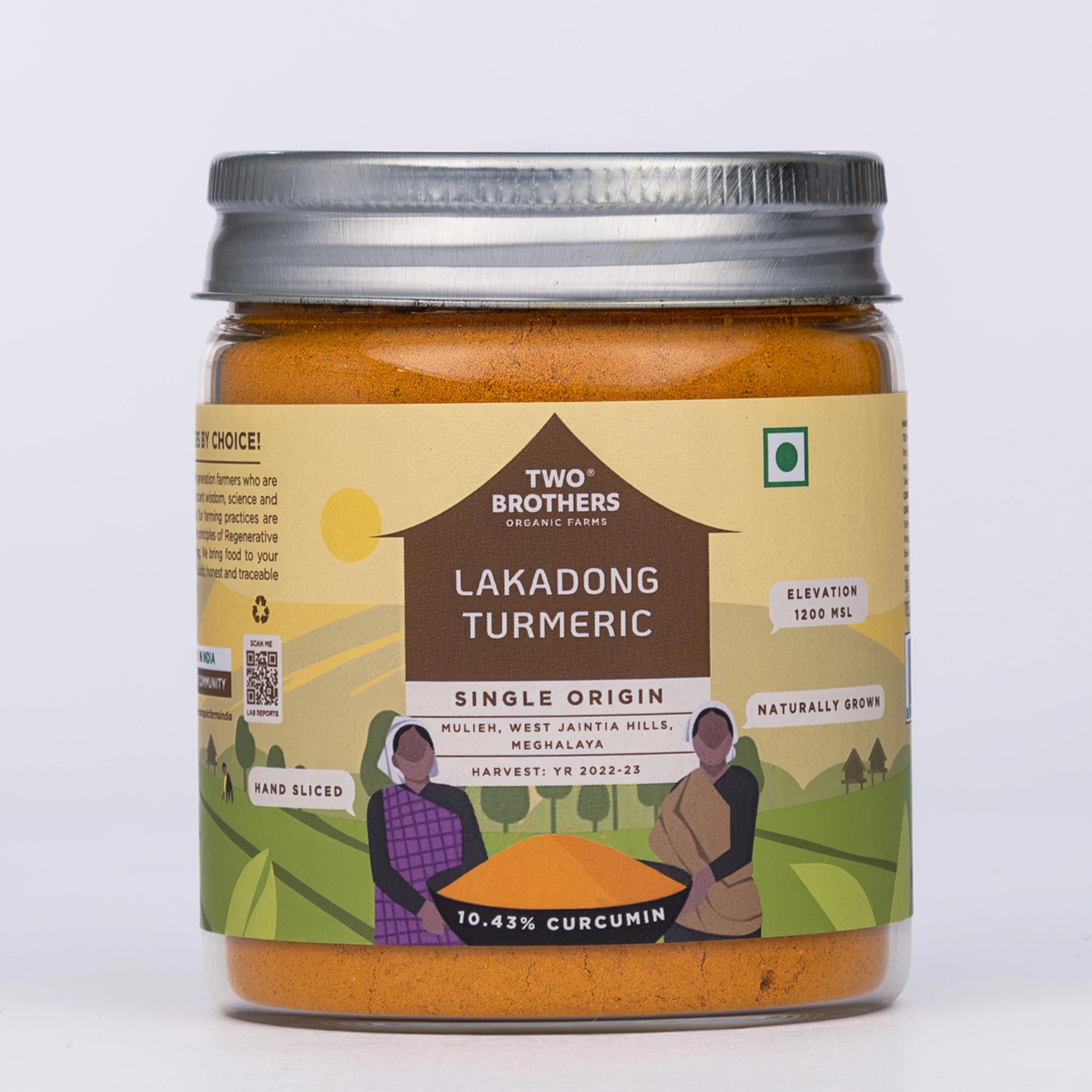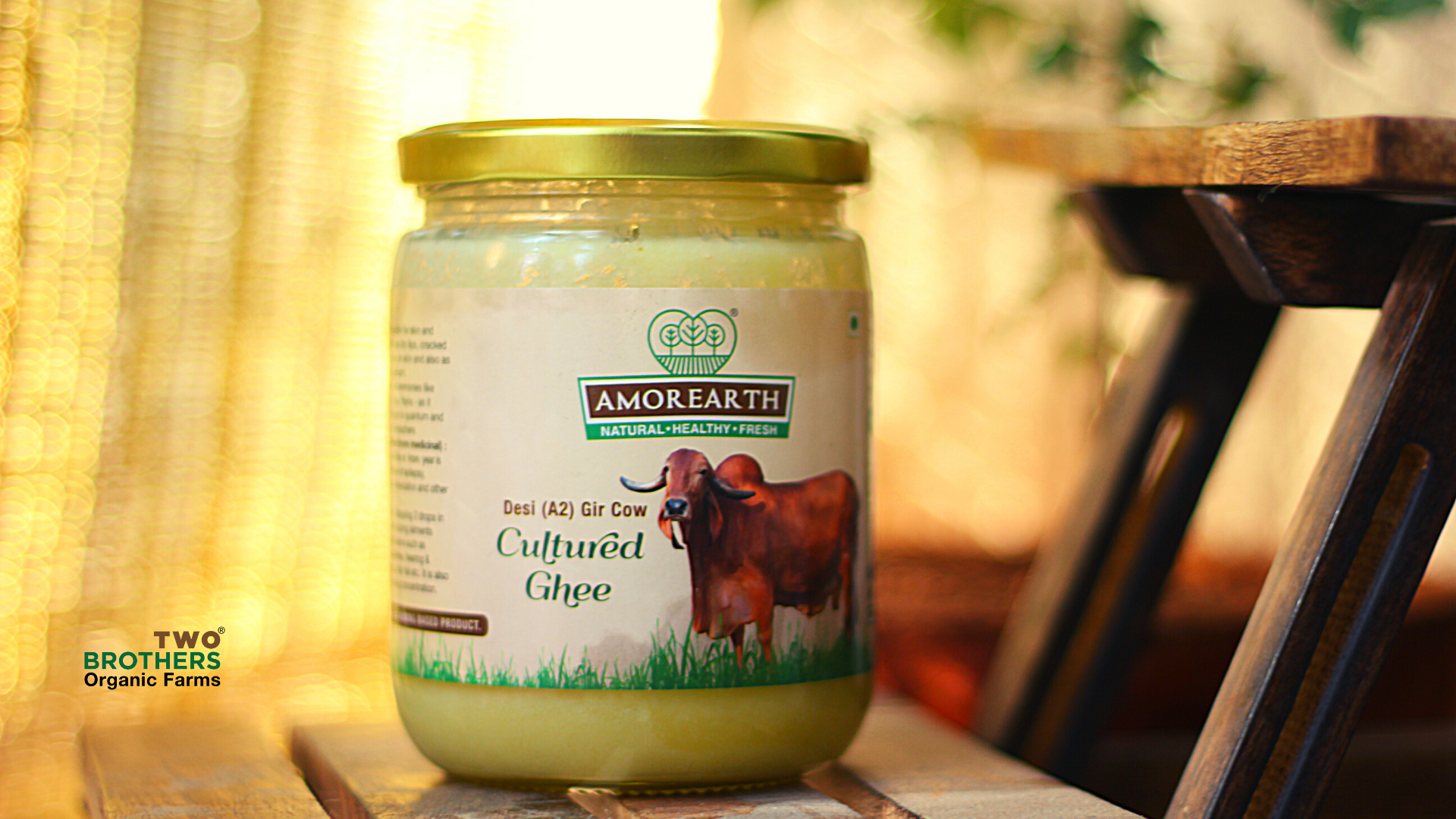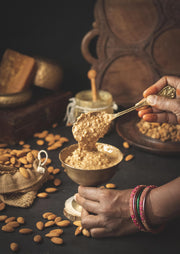Isn’t it true that every well-known thing, be it an ingredient, a place, or a person, is surrounded by rumours and myths? A2 Ghee is also one of those famous and most loved foods that is encircled with a few myths that are far from the facts.
This century-old golden elixir has not just enriched our taste buds; it is also known for its healthy properties. It has been praised in most ancient civilizations, from India, to Iran, Africa, and so on. So, what brought up the myths surrounding ghee?
That’s what we will be uncovering in “8 A2 Ghee Myths and Facts: What You Should Know!”.

It’s time to embrace this healthy, hearty, and delicious ingredient in our lives with open arms. Let’s debunk a few myths with some insightful facts to clear the air.
|
Table of Contents
|
Did You Know?
It takes about 30 to 40 liters of indigenous cow’s A2 milk to make a liter of A2 ghee. That is because A2 cow milk is 87% water and only 13% solids—these solids include fat and carbohydrates in the form of lactose, vitamins, minerals, and protein.
Here are a few very interesting myths about A2 ghee that you must have come across here and there.
Myth 1: A2 Ghee is the Same as All Other Ghee.
Fact: A2 ghee is different from all the other ghee in the market.
This common misconception that A1 ghee and A2 are the same is wrong. A1 and A2 are two different types of proteins found in cow’s milk. While A1 protein is found in the milk of non-native hybrid cow’s milk, A2 protein is found only in indigenous breeds of cows like Gir cows and in some African breeds of cows.
Moreover, the A1 protein is a result of genetic mutation (in hybrid cows) and is difficult to digest, can cause irritable bowel symptoms, etc. A2, on the other hand, is easy on the stomach and has a composition similar to that of mother’s milk.
Myth 2: A2 Ghee is not Keto Friendly.
Fact: Grass-fed A2 Ghee is truly a keto-friendly ghee.

A2 ghee made from grass-fed cow’s milk is high in butyric acid and short-chain fatty acids, which helps to push the body into ketosis (burning fat to generate energy) faster. Since A2 ghee does not contain casein, lactose, or carbohydrates, it is an ideal keto-friendly fat.
Myth 3: A2 Ghee Can Cause Lactose Intolerance in People.
Fact: A2 Ghee can be consumed by lactose-intolerant people.
Lactose intolerance is a condition where the body is unable to digest the ‘lactose’ present in dairy products. Since. A2 ghee is free from both types of milk proteins: casein and lactose; it doesn’t cause lactose intolerance issues.
But what might cause symptoms similar to lactose intolerance is the intake of ghee made from A1 cow’s milk. A1 protein is not easily digestible and can irritate the stomach.
Myth 4: A2 Ghee is Difficult to Digest.
Fact: A2 ghee is easier to digest.
A2 ghee contains A2 proteins. The A2 proteins are made of proline, an amino acid that is easier to break down and digest. Also, A2 ghee does not have lactose or casein. This makes A2 ghee easier on the gut.
Myth 5: A2 Ghee Can Cause Weight Gain.
Fact: A2 Ghee helps to lose weight when consumed in moderation.
The Keto diet is just one example where A2 ghee is recommended to lose some fat quickly. Research also suggests that consuming ghee in moderation helps in losing weight.
Myth 6: A2 Ghee Can Cause Heart Diseases.
Fact: A2 ghee helps in decreasing blood cholesterol and blood sugar levels, keeping the heart and pancreas healthy.
Here’s a study suggesting that moderate consumption of ghee decreases lipid (fat) levels in the blood. Ghee also keeps you full for longer hours, controls your appetite, decreases cravings for sugary foods, improves digestion, and promotes better sleep. All these benefits help in losing weight and living an active life.
Myth 7: A2 Ghee is High in Unhealthy Fats.
Fact: A2 is rich in healthy fats.
A2 ghee contains short-chain fatty acids, or medium-chain fatty acids (MCTs). These fatty acids are easily absorbed by the liver to generate energy. They don’t put stress on the digestive system and aren’t deposited in the form of fat.
The consumption of A2 ghee also lowers bad cholesterol and increases good fats in the body. It is also known to be cardioprotective and hepatoprotective, i.e., good for heart and liver health.
Myth 8: A2 Ghee Only Has Fats.
Fact: A2 ghee is a powerhouse of Immuno-nutrients.

A2 ghee is an abundant source of fat-soluble vitamins A, D, E, K, and essential fatty acids such as linolenic acid and arachidonic acid. It also has carotenoids: lutein, squalene, magnesium, phosphorus, and calcium. All these nutrients play a vital role in the body, known for their anti-ageing, anti-depressant, anti-cancer activity, and keeping bone, muscle, hair, and skin healthy.
FAQs: 8 A2 Ghee Myths and Facts: What You Should Know!
How much desi ghee is safe to consume daily?
Consuming 3-6 teaspoons of desi ghee per day is recommended for any active, healthy adult. However, in case of any health conditions like jaundice, etc. it is best for you to consult a medical professional about its daily dose.
Can pregnant and lactating women consume organic cow ghee?
Lactating mothers can benefit a lot from consuming A2 ghee. It is easy to digest, relieves constipation, and regulates hormones and conditions like high blood glucose levels and cholesterol levels.
Moreover, it helps to recover faster after giving birth to a baby. Consuming ghee also ensures a regular secretion of milk rich in DHA (a compound responsible for the brain development of babies).
Why is A2 ghee so expensive?
Firstly, A2 ghee is made from the milk of native cows (Gir and Sahiwal). They are grass-fed and not injected with hormones/ chemicals to increase milk supply. So, the organic milk supply remains limited.
Secondly, it takes about 30 to 40 liters of cow milk to make 1 liter of A2 desi ghee.
Thirdly, the average price of one liter of A2 cow milk is 90 rupees. This means 30 liters will cost 2700 rupees. That’s the minimum cost of A2 Gir cow desi ghee made from the traditional bilona method.
How do you test the purity of A2 ghee?
Pure A2 ghee turns brown after being heated at a high temperature. Adulterated ghee doesn’t give a brown colour and often leaves behind some residue or smell, indicating it isn’t pure. Another method is to melt the ghee and then refrigerate it. If it is mixed with other oils, you can see them in the form of layers.
How can I use A2 ghee for weight loss?
One of the most convenient ways to use ghee for weight loss is to consume it early in the morning in warm water. This remedy will keep you full for longer hours and prevent you from eating unnecessarily.
Conclusion
It is important to understand the origin of every food and its ingredients these days. Blindly believing in myths can be harmful to your health and might prevent you from enjoying the goodness of nutrient-rich foods like A2 ghee.
We hope that we were able to bust a few myths surrounding A2 ghee in this blog– “8 A2 Ghee Myths and Facts: What You Should Know!”. So, now you can freely include A2 desi ghee in your and your family’s meals and be assured of its benefits.
Don’t forget to explore Two Brother’s Organic Farms organic products. We also provide A2 Gir cow ghee, full moon ghee, and various Ayurvedic herbal ghee and farming products. Check them out.

















